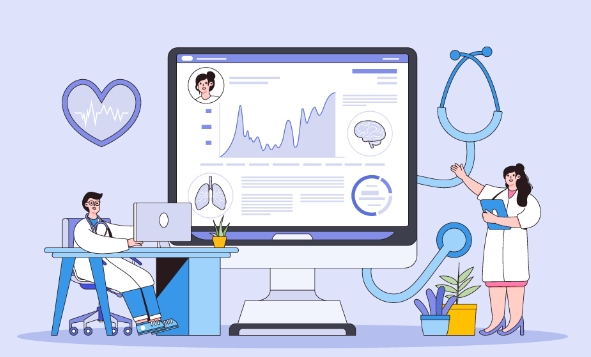Revolutionizing Healthcare: The Benefits of an Integrated Health Information System
In today’s fast-paced and technology-driven world, healthcare providers are constantly looking for ways to improve efficiency and patient care. One solution that has been gaining popularity is the use of an integrated health information system. By consolidating medical records, treatment plans, and test results into one centralized database, healthcare professionals can access important patient information quickly and easily.
Improved Communication and Coordination
With an integrated health information system, healthcare providers can communicate more effectively with each other. This means that doctors, nurses, and other medical professionals can easily share important information about a patient’s treatment plan and progress. This can lead to better coordination of care and ultimately improve patient outcomes.
Streamlined Workflow
An integrated health information system can also streamline workflow for healthcare providers. By having all patient information in one place, clinicians can spend less time searching for records and more time focusing on providing quality care. This can result in reduced wait times for patients and increased overall efficiency in healthcare settings.
Enhanced Patient Care
One of the biggest benefits of an integrated health information system is the potential for improved patient care. With easy access to a patient’s complete medical history, healthcare providers can make more informed decisions about treatment options. This can lead to better outcomes for patients and a higher level of satisfaction with their healthcare experience.
Better Data Security
In today’s digital age, protecting patient data is more important than ever. An integrated health information system can help improve data security by providing a centralized and secure location for storing medical records. This can help prevent unauthorized access to sensitive patient information and ensure compliance with privacy regulations.
Cost Savings
Finally, implementing an integrated health information system can lead to cost savings for healthcare providers. By reducing administrative burdens and streamlining workflow, healthcare organizations can operate more efficiently and save money in the long run. This can lead to better allocation of resources and ultimately result in better patient care.
Overall, an integrated health information system has the potential to revolutionize healthcare by improving communication, coordination, and efficiency among healthcare providers. By investing in this technology, healthcare organizations can provide better care for their patients and ultimately improve the overall quality of healthcare delivery.

